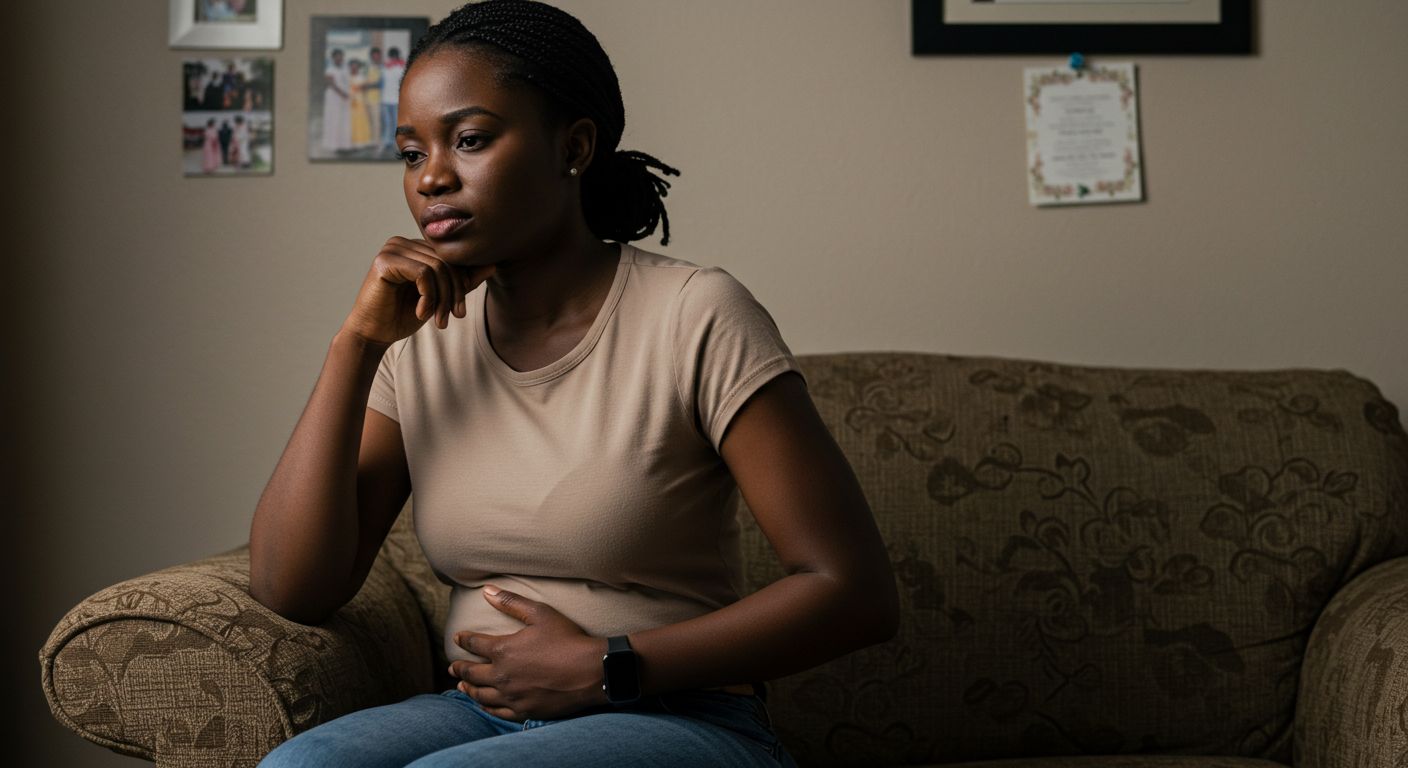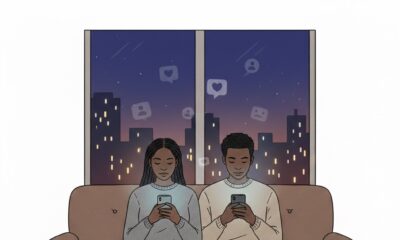Features
Jennifer Orisakwe: What If a Woman Does Not Want a Child?

“When are we coming to eat rice?” “This your tummy is looking round o. Should we be expecting something?” “You’re 30 and no kids? You better hurry before your eggs finish!”
These might sound like harmless banter, but for many Nigerian women, they’re not jokes. They’re constant, intrusive reminders that their bodies are being watched, judged, discussed and dissected without permission.
We now live in the exhausting world of womb watching, the implicit cultural surveillance that demands every Nigerian woman’s uterus be publicly accounted for.
Marriage, Motherhood and The Countdown Clock
In Nigeria, womanhood is often defined by specific milestones: getting married before the age of 30 and having children soon after. Women who choose to forge their paths, whether by choice or circumstance, frequently face disapproving scrutiny.
Nnenna, a 34-year-old writer from Enugu, explains, “The pressure isn’t just from family; it comes from colleagues, church members, and even strangers on Instagram. Everyone seems to believe they deserve an update on your reproductive status.”
It is common for women to be questioned at weddings, baby showers, or even funerals about their life choices. When their timelines do not align with societal expectations, especially with childbirth, rumours often begin to circulate: Is it fibroids? Is there a spiritual issue? Did they have too many abortions during their school years?
Invisible Illness, Visible Judgment
What makes womb watching even more cruel is its complete disregard for the silent medical battles many women face, such as endometriosis which affects at least 10% of Nigerian women, often leading to chronic pelvic pain and infertility, PCOS which disrupts ovulation and causes hormonal imbalances, affects up to 1 in 10 women, but many go undiagnosed due to stigma or misdiagnosis, and fibroids which are noncancerous growths, are particularly common in Black women, with studies showing 70–80% of African women may develop them by age 50. Symptoms include heavy bleeding, pain and fertility complications.
An estimated 1 in 5 Nigerian couples experience infertility, yet the blame for this issue almost always falls on the woman, even though male-factor infertility accounts for 40-50% of cases worldwide.
“They told me to go for IVF because I’m the woman,” says Efe, a 35-year-old banker in Abuja. “But guess what? The doctor said the issue was with my husband’s sperm. He refused to go back for another test.”
From low sperm count to motility issues, many men remain in denial, avoiding tests or treatment while women endure painful procedures, spiritual deliverance sessions and public shame. In some families, a man’s infertility is deliberately hidden, while the woman is labelled as barren.
“I lived with excruciating pain for years,” says Aisha, a 29-year-old designer in Lagos. “But any time I mentioned it, someone would say, ‘Don’t speak it into existence. Just pray.’ I wasn’t even allowed to name what was wrong with me.”
Shame and spiritual stigma often prevent women from seeking medical help. Many turn to religious leaders or unregulated herbal remedies instead of gynaecologists. Others can’t afford a diagnosis, let alone treatment.
Meanwhile, some women simply do not want children, and that choice is still viewed as unnatural or selfish. Nigerian society continues to see a woman’s body as public property. Her womb, a national asset.
The Mental Burden
Studies have linked fertility-related stress to anxiety, depression and even post-traumatic stress disorder (PTSD). The emotional toll of constantly being reminded of what your body hasn’t done yet can be devastating. Meanwhile, chronic stress can actually affect fertility. High cortisol levels can disrupt hormone production, delay ovulation, and even increase the risk of miscarriage.
So the very pressure to hurry and born may be sabotaging a woman’s ability to conceive in the first place.
Can Tech and Therapy Help Break the Cycle?
Thankfully, a new generation of Nigerian women is fighting back with knowledge, boundaries and technology. Apps like Flo, Clue, and Nigeria’s own Whispa are helping women better understand their cycles, fertility windows and overall reproductive health.
Many digital health platforms are also breaking access barriers, offering discreet consultations with licensed professionals. Meanwhile, more women are turning to therapy, whether online or in-person, to process the trauma of body-shaming, medical gaslighting and unsolicited advice.
What Needs to Change?
We need a cultural reset. One where we stop treating a woman’s reproductive journey as a community service announcement. Where “adding weight” doesn’t automatically spark pregnancy rumours. Where women aren’t reduced to timelines, fertility charts, or ovulation tests. Let’s stop the unsolicited advice. Let’s unlearn the shame. Let’s let women live at their own pace, for their own reasons.
To every Nigerian woman who’s ever felt interrogated, invalidated, or incomplete, you are not your fertility. Your worth isn’t tied to a pregnancy test, a ring or a hospital report. Your womb is not a group project.
Have you ever been pressured to explain your reproductive choices? How do you set boundaries?




















